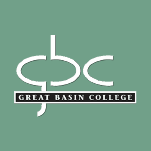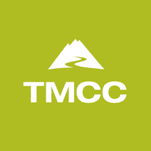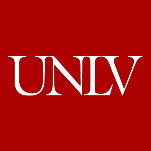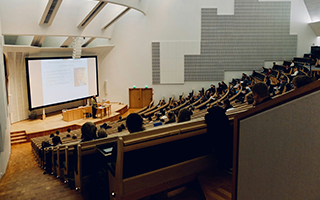NSHE Chancellor Thom Reilly Issues Memorandum on COVID-19 – March 25, 2020
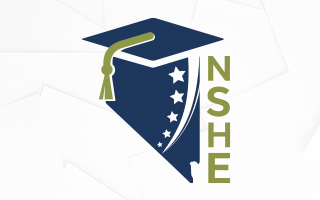
To: The Nevada System of Higher Education Council of Presidents
From: Thom Reilly, Chancellor
CC: The Nevada Board of Regents
Date: March 25, 2020
Re: Memorandum on COVID-19
The purpose of this memorandum is to document the various decisions and guidance that resulted from our Council of President’s meeting on March 24, 2020, including but not limited to matters of student withdrawals, satisfactory/unsatisfactory grades, hiring freezes, graduation ceremonies, etc. These are unanimous recommendations from the Presidents. For ease in review, issues are delineated by subheading and for each issue it is noted whether Board action is necessary. For those matters that require Board approval, staff is in the process of scheduling an emergency Board meeting that will be announced in the coming week.
Extension of Remote Instruction through End of Spring Term
Given the ever-changing environment consequent to the spread of the virus and consistent with Governor Sisolak’s current emergency directives on social distancing, all NSHE institutions will complete the spring semester through remote instruction. Except for the limited case-by-case courses in specific areas where remote learning is not feasible, such as healthcare clinicals, CTE labs, etc., no in-person instruction will occur until after the current semester is complete and when safe to do so. We will revisit the need, if any, to continue remote-only instruction into the summer semesters at a later time.
Graduation Ceremonies
Holding in-person graduation ceremonies is not permitted under current emergency directives, and due to the need for advanced scheduling, no scenario is foreseeable where they could occur in a traditional manner for the Spring 2020 semester. Institutions should begin developing alternative virtual ceremony proposals and/or dates for later in the Summer or Fall to reschedule their ceremonies. Please forward to me alternative proposals for your institution’s graduation ceremonies so I can share with the Board.
Faculty Pay for Remote Instruction
I am very appreciative of the work of our faculty to move all instruction to a remote environment during this challenging time. Mid-semester adjustments like this are challenging under the best of circumstances. That said, because of the emergency nature of this situation, there will be no additional compensation for faculty for moving to remote instruction. I will continue to express our gratitude to our faculty for their flexibility and willingness to help students stay the course during these unprecedented times.
Tenure Clock Pause
The disruption this semester raised concerns about the timing of the tenure process for faculty currently on a tenure track. Institutions already have in place a protocol whereby faculty seeking tenure can request a “pause” in the tenure evaluation timeline for extenuating circumstances. The current COVID-19 pandemic will be recognized systemwide as a valid circumstance to extend or pause the tenure clock, should a faculty member wish to do so. Any tenure-track faculty member seeking such a pause of their tenure clock because of COVID-19 shall submit a request, within 12 months of their institution transitioning to remote instruction, to their institution in accordance with established protocols. These requests cannot be denied.
S/U Grading
There are two primary issues related to the use of “S” (satisfactory) and “U” (unsatisfactory) grades that I will address herein. First, the provisions of Title 4, Chapter 16, Section 37 dictates the letter grade that would be necessary for an “S” grade to be applied (“C” or better for undergraduate students; “B” or better for graduate students). That particular provision is not consistent with the predominant grading practice whereby a D- or better may meet a degree requirement. Therefore, I will be recommending that policy will be suspended at the next Board meeting when the Board can formally remove the aforementioned provisions. This will effectively allow institutions to apply a “satisfactory” grade for students in accordance with existing provisions to earn credit for degree requirements (e.g. “D-“or better, or as otherwise appropriate).
Second, to allow for flexibility due to campus closures and changes in course content delivery related to COVID-19 measures, all NSHE institutions shall make the “S/U” grading option available to students through the end of the Spring 2020 semester and after issuance of final grades for all courses. Likewise, within these parameters, institutions are encouraged to set a deadline for such student petitions and advertise the deadline widely. As part of this process, students must be advised of the ramifications of petitioning for a change to “S/U” grading before submitting such a request. This section applies to certificates, undergraduate, graduate and professional schools. Presidents will work with their respective Faculty Senates in establishing procedures to allow students to petition for an S/U grade.
There are a number of potentially negative ramifications to the use of “S/U” grading, including impacts on continuing eligibility determinations for the Governor Guinn Millennium Scholarship and other scholarships, graduate school applications, course prerequisites, and other processes/determinations based on GPA. As such, the application of “S/U” grades should be administered with prudence and full consideration by the student after consultation with their academic advisor. Faculty cannot, on their own change the grading scheme for a course to
“S/U”. Grades will require a petition from the student after the semester is completed and the student has received a letter grade.
Suspension or modification of this provision in Title 4, Chapter 16 requires Board approval. Therefore, authority to deviate from these policies will be raised as an agenda item for the Board’s consideration at its next meeting.
Delinquent Accounts
The provisions of Title 4. Chapter 17, Section 2 provide that a student with a delinquent or overdue account shall not be permitted to register at any NSHE institution or receive a transcript of academic record, a diploma, a certificate or report of semester grades. Departure from this provision requires Board approval. Therefore, I will request that the aforementioned policy be temporarily suspended by the Board at the next scheduled Board meeting (to be announced). The temporary suspension of this provision will allow students facing financial hardship to register for summer and fall courses and obtain transcripts and other academic records.
Deferred Payments
Each institution has authority in Title 4, Chapter 17, Section 18 to defer payments, and to modify the fees and interest on past due amounts. Institutions may also set the payment schedules for any deferrals. Institutions are encouraged to be as accommodating and flexible as possible for students and families impacted by COVID-19. However, this provision requires that deferred payments are nevertheless due by the end of the Spring 2020 semester. Departure from this requirement will require Board action. If an institution wants to defer payments past the semester, then Board approval is required.
Hiring Freeze Clarifications
The hiring freeze directives from the State Department of Administration, Division of Human Resource Management, and the Governor’s Finance Office indicated the hiring freeze applies to all positions, whether funded by the general fund, fees, or federal funds. However, the Division of Human Resource Management did provide for the exemption of positions needed for the delivery of critical health care services or public safety.
To ensure NSHE hiring freeze policies are consistent with directives from the Governor’s Office only positions needed for the delivery of critical health care services or public safety may be filled without going through the formal justification process. All other requests for an exception to the hiring freeze must be submitted to Chief Financial Officer Andrew Clinger and myself for review and approval. Submissions for exceptions to the hiring freeze may be sent via email as long as it is clear the President has approved the exception. A list of multiple positions may be submitted for justification in one memo if the justification for those positions is the same. I will be providing a list of positions approved to the Board on a monthly basis.
Student Withdrawals
For the purpose of the funding formula, the Board established a student withdrawal policy to ensure that all institutions allow students to withdraw from courses through the same point in time. Under the funding formula, Ws are excluded from the WSCH used in distributing state funding. Therefore, there must be consistency in the use of Ws across the system to preserve the equity of the funding formula.
Currently, Title 4, Chapter 15, Sections 12, 21, and 32, provide that a student may drop or withdraw from a course up until 60 percent of the course instruction has occurred. The policy further provides that exceptions may be made for exceptional circumstances beyond the control of the institution or the student. As such, the Chancellor and Council of Presidents unanimously agreed to extend the student withdrawal period up until 70 percent of the course instruction has occurred for the Spring 2020 semester only. Please send to me your 70 percent withdrawal date and a link to where on your website that information can be located.
Concluding Remarks – Special Meeting to be Announced
As some of the aforementioned issues will require Board approval for suspension, within the coming week an announcement will be made concerning the scheduled date for a special Board meeting. The Board meeting will adhere with the Governor’s new directives on public meetings. I have consulted with both the Chair and Vice-Chair on these recommended changes. In the meantime, should you have any questions or concerns, please contact directly.



